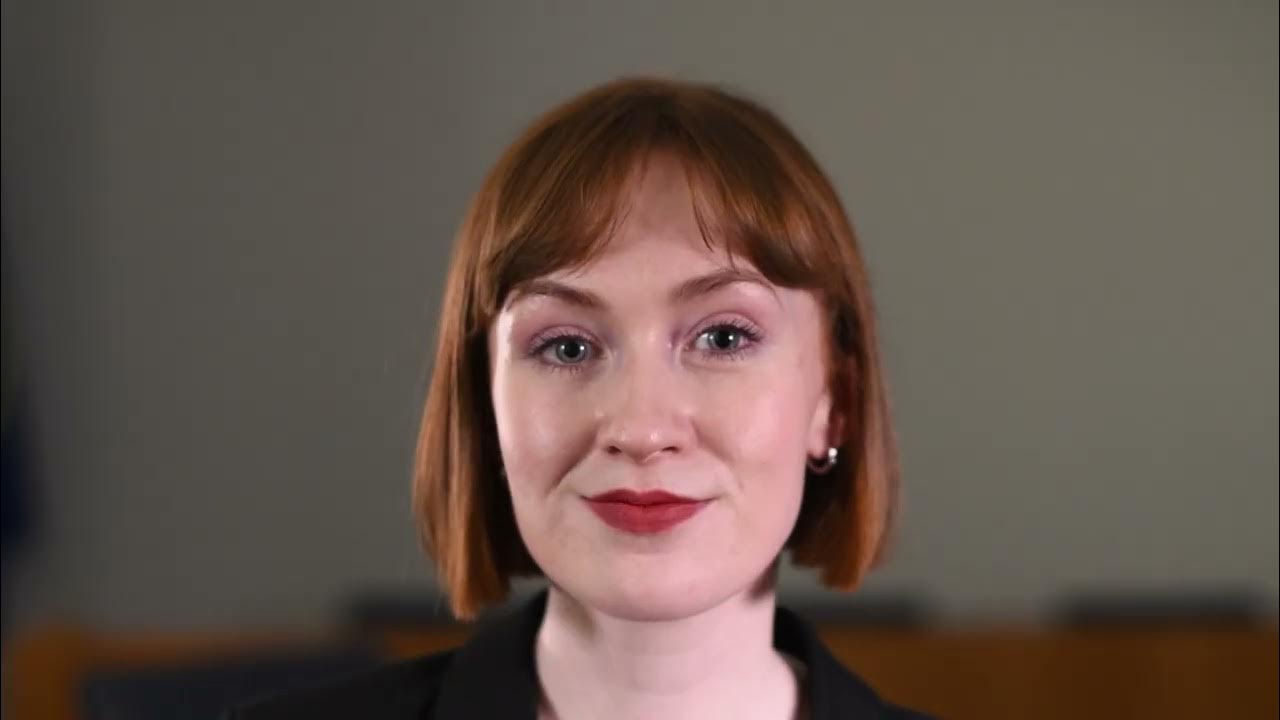How do US Supreme Court justices get appointed? - Peter Paccone
Summary
TLDRThe video outlines the complex process of becoming a justice on the US Supreme Court, emphasizing the role of presidential nomination, Senate approval, and the lifelong tenure of justices. It highlights the absence of formal qualifications, allowing diverse candidates, and notes the significant influence of political ideology on nominations. The process includes rigorous vetting and hearings by the Senate Judiciary Committee, where nominees are questioned about their legal records and positions on key issues. Ultimately, justices are expected to uphold the rights of all Americans, leaving behind legacies that are scrutinized by history.
Takeaways
- 😀 Becoming a US Supreme Court justice requires nomination by the president, Senate approval, and formal appointment.
- 📝 The Constitution does not specify qualifications for justices, allowing diverse candidates including foreign-born individuals.
- 🔍 Presidents often nominate individuals who share their ideological views, but outcomes can be unpredictable.
- ⚖️ The Senate Judiciary Committee conducts extensive vetting, including interviews and background checks on nominees.
- 📅 Nomination hearings have averaged about 60 days since the Nixon administration, reflecting the political climate.
- 🚫 Most rejections occur when the Senate majority party differs from the president's party.
- ✍️ A simple majority vote in the Senate is required for approval, with the vice president breaking ties if necessary.
- 📜 Justices serve for life unless they resign, retire, or are impeached, with no justices removed via impeachment to date.
- 🛡️ Justices play a crucial role in protecting the fundamental rights of all Americans across political changes.
- 📚 Each justice leaves behind a legacy of decisions that will be analyzed and debated throughout history.
Q & A
What are the three steps required for someone to become a US Supreme Court Justice?
-A candidate must be nominated by the president, approved by the Senate, and formally appointed by the president.
Are there any constitutional qualifications required to be nominated for the Supreme Court?
-No, the Constitution does not specify any qualifications such as age, education, or citizenship.
What factors do presidents consider when nominating a Supreme Court Justice?
-Presidents typically consider ideological alignment, experience, personal loyalties, ethnicity, and gender.
How long do Supreme Court nomination hearings typically last?
-Since the Nixon administration, hearings have averaged around 60 days.
What is the role of the Senate Judiciary Committee in the nomination process?
-The committee conducts hearings to evaluate the nominee's qualifications, legal record, and views on key issues.
What happens if the Senate majority party differs from the president's party during a nomination?
-Rejections are more likely to occur in such cases, often reflecting political leanings.
What does a Supreme Court Justice pledge when taking their oath?
-They swear to administer justice impartially and faithfully discharge their duties.
What is the tenure of a US Supreme Court Justice?
-Supreme Court Justices serve for life, unless they resign, retire, or are impeached.
How many justices have been removed from the Supreme Court through impeachment?
-As of now, not one of the 112 justices has been removed from office via impeachment.
What legacy do Supreme Court Justices leave behind?
-Each justice leaves behind a legacy of decisions and opinions that are subject to debate and historical interpretation.
Outlines

このセクションは有料ユーザー限定です。 アクセスするには、アップグレードをお願いします。
今すぐアップグレードMindmap

このセクションは有料ユーザー限定です。 アクセスするには、アップグレードをお願いします。
今すぐアップグレードKeywords

このセクションは有料ユーザー限定です。 アクセスするには、アップグレードをお願いします。
今すぐアップグレードHighlights

このセクションは有料ユーザー限定です。 アクセスするには、アップグレードをお願いします。
今すぐアップグレードTranscripts

このセクションは有料ユーザー限定です。 アクセスするには、アップグレードをお願いします。
今すぐアップグレード関連動画をさらに表示

Poder Judiciário - Atualizado 0 EC 122/2022 (Direito Constitucional): Resumo Completo

CHECKS on the PRESIDENCY [AP Gov Review Unit 2 Topic 5 (2.5)]

What Is the Judicial Branch of the U.S. Government? | History

Judicial Appointments to the UK Supreme Court

Dems weigh replacing Justice Sotomayor ahead of Trump's second term: Report

How does the U.K. Supreme Court work?
5.0 / 5 (0 votes)
